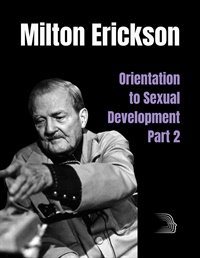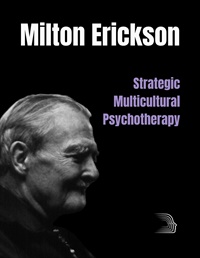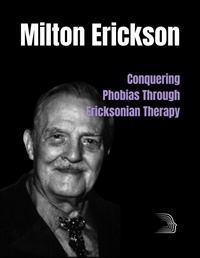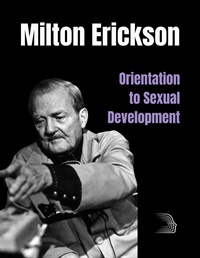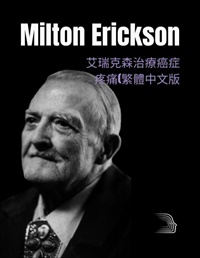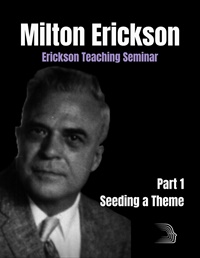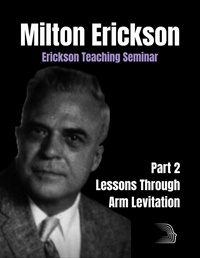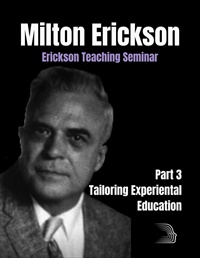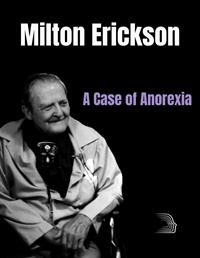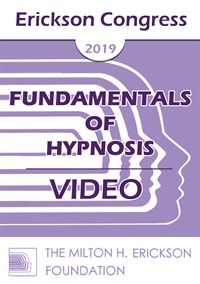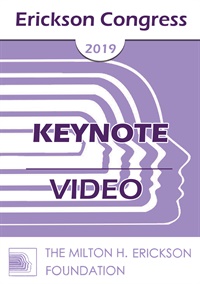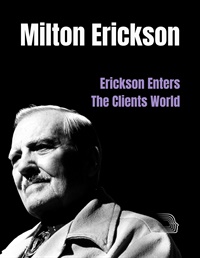
- Average Rating:
- Not yet rated
- Topic Areas:
- Milton Erickson | Dreamwork | Utilization | Ericksonian Hypnosis and Therapy Techniques | Hypnosis
- Categories:
- Erickson Streaming Video Collection | Erickson Materials | Milton H. Erickson Collections
- Faculty:
- Jeffrey Zeig, PhD | Milton H. Erickson, MD
- Course Levels:
- Master Degree or Higher in Health-Related Field
- Duration:
- 46 minutes
- Format:
- Audio and Video
- Original Program Date:
- Jun 24, 2021
- Short Description:
- Erickson demonstrates his utilization method of entering into the client’s world. He demonstrates his unique approach to working with dreams using a parallel process to stimulate strategic understandings of restrictive family patterns.
- Price:
- $39.95 - Base Price
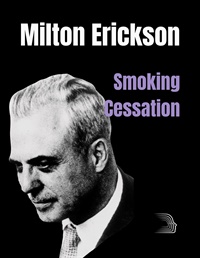
- Average Rating:
- Not yet rated
- Topic Areas:
- Ericksonian Hypnosis and Therapy Techniques | Milton Erickson | Addiction | Habits | Tailoring | Hypnosis
- Categories:
- Erickson Streaming Video Collection | Erickson Materials | Milton H. Erickson Collections
- Faculty:
- Jeffrey Zeig, PhD | Milton H. Erickson, MD
- Course Levels:
- Master Degree or Higher in Health-Related Field
- Duration:
- 1h 14m
- Format:
- Audio and Video
- Original Program Date:
- May 07, 2021
- Short Description:
- A client asks Erickson to help him stop smoking tobacco. Rather than using a formula, Erickson tailors a treatment approach to both address underlying problems and elicit resources.
- Price:
- $39.95 - Base Price
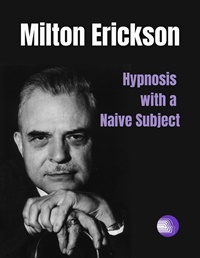
- Average Rating:
- Not yet rated
- Topic Areas:
- Hypnosis | Ericksonian Hypnosis and Therapy Techniques | Milton Erickson | Destabilization
- Categories:
- Erickson Streaming Video Collection | Milton H. Erickson Collections | Erickson Materials
- Faculty:
- Milton H. Erickson, MD | Jeffrey Zeig, PhD
- Course Levels:
- Master Degree or Higher in Health-Related Field
- Duration:
- 1 hour
- Format:
- Audio and Video
- Original Program Date:
- Apr 19, 2021
- Short Description:
- Erickson works hypnotically with a naive subject. He demonstrates the use of arousal state and destabilizing methods. Hypnosis can stimulate resources into play that can promote adaptive living.
- Price:
- $49.95 - Base Price

- Average Rating:
- Not yet rated
- Topic Areas:
- Hypnosis | Conversation Hours | Ericksonian Hypnosis and Therapy Techniques
- Categories:
- Evolution of Psychotherapy | Evolution of Psychotherapy 2020
- Faculty:
- Bill O'Hanlon, MS
- Course Levels:
- Master Degree or Higher in Health-Related Field
- Duration:
- 1:01:12
- Format:
- Audio and Video
- Original Program Date:
- Dec 13, 2020
- Short Description:
- EP20 Conversation Hour 09 - Evocation: The Foundation of Ericksonian Hypnosis and Therapy - Bill O'Hanlon, MS
- Price:
-
Sale is $29.00
price reduced from Base Price - $59.00
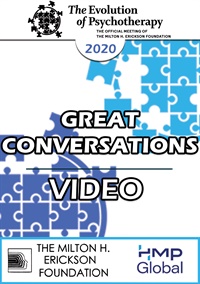
- Average Rating:
- Not yet rated
- Topic Areas:
- Gestalt | Great Conversations | Ericksonian Hypnosis and Therapy Techniques | Experiential Therapy | Psychotherapy | Art and Creativity
- Categories:
- Evolution of Psychotherapy | Evolution of Psychotherapy 2020
- Faculty:
- Erving Polster, PhD | Jeffrey Zeig, PhD
- Course Levels:
- Master Degree or Higher in Health-Related Field
- Duration:
- 1 hour
- Format:
- Audio and Video
- Original Program Date:
- Dec 11, 2020
- Short Description:
- Poetry and Presence: Each can lead to client change. This session explores the intersection of two experiential methods, gestalt practice and Ericksonian therapy.
- Price:
-
Sale is $29.00
price reduced from Base Price - $59.00
Credit available - Click Here for more information
- Average Rating:
- Not yet rated
- Topic Areas:
- Milton Erickson | Sex and Sexuality | Ericksonian Hypnosis and Therapy Techniques | Experiential Therapy | Storytelling | Strategic Therapy | Hypnosis
- Categories:
- Erickson Materials | Erickson Streaming Video Collection | Milton H. Erickson Collections | Online Continuing Education
- Faculty:
- Jeffrey Zeig, PhD | Milton H. Erickson, MD
- Course Levels:
- Master Degree or Higher in Health-Related Field
- Duration:
- 1 Hour 8 Minutes
- Format:
- Audio and Video
- Original Program Date:
- Sep 24, 2020
- Short Description:
- In Part 2 of Dr. Erickson’s Orientation to Sexual Development, Milton Erickson continues his interesting lecture about the natural developmental processes involved with sexual/relational maturity. This video begins with Erickson telling charming stories of his sons sexually and relationally developing, which illustrate the principles outlined in the video.
- Price:
- $19.95 - Base Price
- Average Rating:
- Not yet rated
- Topic Areas:
- Milton Erickson | Multicultural | Psychotherapy | Ericksonian Hypnosis and Therapy Techniques | Utilization | Hypnosis | Strategic Therapy
- Categories:
- Erickson Streaming Video Collection | Erickson Materials | Milton H. Erickson Collections
- Faculty:
- Jeffrey Zeig, PhD | Milton H. Erickson, MD
- Course Levels:
- Master Degree or Higher in Health-Related Field
- Duration:
- 59 Minutes
- Format:
- Audio and Video
- Original Program Date:
- Aug 13, 2020
- Short Description:
- Milton Erickson often advised psychotherapy students to study anthropology so that therapy could be provided from the perspective of the cultural background of the client. In the video, Erickson uses his understanding of cultural orientation when working with an adolescent where the presenting problem is a speech defect. This is a highly informative case of using strategic and systemic processes that can be applied to other presenting problems.
- Price:
- $19.95 - Base Price
- Average Rating:
- Not yet rated
- Topic Areas:
- Ericksonian Hypnosis and Therapy Techniques | Phobia | Milton Erickson | Hypnosis | Hypnotherapy | Strategic Therapy
- Categories:
- Erickson Streaming Video Collection | Erickson Materials | Milton H. Erickson Collections
- Faculty:
- Jeffrey Zeig, PhD | Milton H. Erickson, MD
- Course Levels:
- Master Degree or Higher in Health-Related Field
- Duration:
- 1 Hour 12 Minutes
- Format:
- Audio and Video
- Original Program Date:
- Aug 13, 2020
- Short Description:
- This video contains the best illustration of how Milton Erickson's handles cases presented to him. Using both hypnotherapy and strategic directives, Erickson works with a woman who has a phobia of a flying in a plane. This significant case exemplifies the fundamental principles and practices of an Ericksonian approach. These can be applied to other presenting problems and used by clinicians who subscribe to other treatment methodologies for a particular problem.
- Price:
- $49.95 - Base Price
This program is not available for credit.
- Average Rating:
- Not yet rated
- Topic Areas:
- Sex and Sexuality | Ericksonian Hypnosis and Therapy Techniques | Milton Erickson | Couples Therapy | Children and Adolescent Therapy | Humor | Hypnosis
- Categories:
- Erickson Materials | Erickson Streaming Video Collection | Milton H. Erickson Collections
- Faculty:
- Jeffrey Zeig, PhD | Milton H. Erickson, MD
- Course Levels:
- Master Degree or Higher in Health-Related Field
- Duration:
- 1 hour
- Format:
- Audio and Video
- Original Program Date:
- Jul 07, 2020
- Short Description:
- In this video, Dr. Milton Erickson describes sexual development — from infancy to adulthood, with a focus on male sexual maturation. As Erickson’s describes sexual development, the viewer feels as if they are going through the process as well. Erickson also includes humorous anecdotes of his children as they grew into adults. At the end of the video Dr. Jeffrey Zeig comments on Erickson’s fascinating teaching methods and communication techniques.
- Price:
- $19.95 - Base Price

- Average Rating:
- Not yet rated
- Topic Areas:
- Utilization | Clinical Demonstrations | Psychotherapy | Therapist Development | Anxiety | Ericksonian Hypnosis and Therapy Techniques | Religion | Art of Psychotherapy
- Bundle(s):
- Art of Psychotherapy - Utilization Series
- Categories:
- Art of Psychotherapy
- Faculty:
- Jeffrey Zeig, PhD
- Course Levels:
- Master Degree or Higher in Health-Related Field
- Duration:
- 2 Hours 22 Minutes
- Format:
- Audio and Video
- Original Program Date:
- Jun 21, 2020
- Short Description:
- In our first session, our demonstration subject has recently made a major life change. They have decided to change their career from being a priest, into becoming a therapist. Big life changes like these often induce anxiety in patients, and in this clinical demonstration we see Dr. Jeffrey Zeig exhibit a number of Ericksonian techniques to help the client be in harmony with themselves. Dr. Zeig utilizes some of Ginny’s religious history to help guide her towards transformation.
- Price:
- $79.00 - Base Price
- Average Rating:
- Not yet rated
- Topic Areas:
- Pain and Healing | Milton Erickson | Ericksonian Hypnosis and Therapy Techniques | Hypnosis | Strategic Therapy | Utilization | Cancer
- Categories:
- Erickson Materials | Erickson Streaming Video Collection | Milton H. Erickson Collections | World Languages | Chinese
- Faculty:
- Milton H. Erickson, MD | Jeffrey Zeig, PhD
- Course Levels:
- Master Degree or Higher in Health-Related Field
- Duration:
- 1 hour
- Format:
- Audio and Video
- Original Program Date:
- May 07, 2020
- Short Description:
- 這個影片裡艾瑞克森醫師談論三個不同疼痛案例,都是運用順勢而為的核心原則做治療。順勢而為是所有問題的核心治療方針,也是艾瑞克森醫師醫生奉行的原則。在他自己的個人生活上和專業上,處處可見順勢而為的痕跡。 影片裡,他告訴我們無論個案帶來什麼,我們都可以順勢而為,把逆境變成順境,把缺點變成優點。透過順勢而為替自己以及別人的生命增添色彩。
- Price:
- $29.95 - Base Price
Credit available - Click Here for more information
- Average Rating:
- Not yet rated
- Topic Areas:
- Seeding | Destabilization | Dissociation | Ericksonian Hypnosis and Therapy Techniques | Milton Erickson | Hypnosis
- Categories:
- Erickson Materials | Erickson Streaming Video Collection | Milton H. Erickson Collections | Online Continuing Education
- Faculty:
- Milton H. Erickson, MD | Jeffrey Zeig, PhD
- Course Levels:
- Master Degree or Higher in Health-Related Field
- Duration:
- 1 hour
- Format:
- Audio and Video
- Original Program Date:
- May 07, 2020
- Short Description:
- In part one of Seeding a Theme - A Teaching Seminar with Milton Erickson, you will witness Erickson seamlessly planting a seed, connecting the dots, developing a theme, and closing the loop in one class period. You will learn how Erickson conducted dissociation through the tempo, content and tone of his words.
- Price:
- $29.95 - Base Price
Credit available - Click Here for more information
- Average Rating:
- Not yet rated
- Topic Areas:
- Ericksonian Hypnosis and Therapy Techniques | Hypnosis | Milton Erickson | Trance | Utilization | Arm Levitation | Hypnotic Phenomena
- Categories:
- Erickson Materials | Erickson Streaming Video Collection | Milton H. Erickson Collections | Online Continuing Education
- Faculty:
- Milton H. Erickson, MD | Jeffrey Zeig, PhD
- Course Levels:
- Master Degree or Higher in Health-Related Field
- Duration:
- 1 hour
- Format:
- Audio and Video
- Original Program Date:
- May 07, 2020
- Short Description:
- In part two of a Teaching seminar with Milton Erickson, you will witness how Erickson carefully observed and utilized a student’s non-verbal behaviors to developing a trance experience using arm levitation while simultaneously interacting to teach other students. You will see how Dr. Erickson strategically used hypnotic phenomena.
- Price:
- $29.95 - Base Price
- Average Rating:
- Not yet rated
- Topic Areas:
- Ericksonian Hypnosis and Therapy Techniques | Milton Erickson | Tailoring | Experiential Therapy | Unconscious Processes | Trance
- Categories:
- Erickson Materials | Erickson Streaming Video Collection | Milton H. Erickson Collections
- Faculty:
- Milton H. Erickson, MD | Jeffrey Zeig, PhD
- Course Levels:
- Master Degree or Higher in Health-Related Field
- Duration:
- 1 hour
- Format:
- Audio and Video
- Original Program Date:
- May 07, 2020
- Short Description:
- In part three of a Teaching Seminar with Milton Erickson, we continue the development of trance experience in the primary subject. You will encounter the experiential teaching method for which Erickson was renowned.
- Price:
- $29.95 - Base Price
Credit available - Click Here for more information
- Average Rating:
- Not yet rated
- Topic Areas:
- Anorexia | Eating Disorders | Milton Erickson | Ericksonian Hypnosis and Therapy Techniques | Utilization | Hypnosis
- Categories:
- Erickson Materials | Erickson Streaming Video Collection | Milton H. Erickson Collections | Online Continuing Education
- Faculty:
- Milton H. Erickson, MD | Jeffrey Zeig, PhD
- Course Levels:
- Master Degree or Higher in Health-Related Field
- Duration:
- 1 hour
- Format:
- Audio and Video
- Original Program Date:
- Apr 27, 2020
- Short Description:
- In this video, you will see Erickson’s unusual way of treating anorexia. Erickson described himself as a person who has an iron fist, but a velvet glove. He knew when it was right to be firm, to be disciplined, and even to be assertive in work with a client. Dr. Jeffrey Zeig provides insightful commentary on this historic Erickson clip.
- Price:
- $29.95 - Base Price
- Average Rating:
- Not yet rated
- Topic Areas:
- Fundamentals of Hypnosis | Hypnosis | Hypnotic Phenomena | Hypnotherapy | Ericksonian Hypnosis and Therapy Techniques
- Categories:
- Erickson Congress | Erickson Congress 2019
- Faculty:
- Dan Short, PhD
- Course Levels:
- Master Degree or Higher in Health-Related Field
- Duration:
- 2 Hours 1 Minutes
- Format:
- Audio and Video
- Original Program Date:
- Dec 15, 2019
- Short Description:
- Erickson resisted standardized hypnotic protocols because he found that everyone responded to hypnosis uniquely. Rather than seeking to force his preferred hypnotic phenomena, he cultivated whatever came naturally. Fortunately, clinical objectives, such as pain relief, can be achieved using a variety of hypnotic phenomena. This session will identify three broad classes of hypnotic experiencing and provide guidance on how to identify natural predispositions.
- Price:
-
Sale is $29.00
price reduced from Base Price - $59.00
- Average Rating:
- Not yet rated
- Topic Areas:
- Keynotes | Hypnosis | Ericksonian Hypnosis and Therapy Techniques | Evocative Communication
- Categories:
- Erickson Congress | Erickson Congress 2019
- Faculty:
- Bill O'Hanlon, MS
- Course Levels:
- Master Degree or Higher in Health-Related Field
- Duration:
- 56 Minutes
- Format:
- Audio and Video
- Original Program Date:
- Dec 15, 2019
- Short Description:
- In this provocative session, Bill O'Hanlon will make the case that Ericksonian Hypnosis does not involve suggestion but instead involves evocation of already existing resources, and that Ericksonian Therapy involves a radical departure from the usual diagnostic, pathological-oriented approach that strives to fix or correct the client’s or patient’s deficits and brokenness.
- Price:
- $29.00 - Base Price
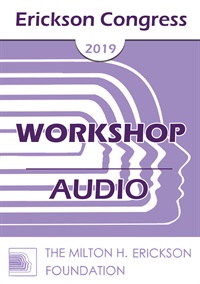
- Average Rating:
- Not yet rated
- Topic Areas:
- Workshops | Mind-Body | Trauma | Pain and Healing | Mindfulness | Somatic Experiences | Ericksonian Hypnosis and Therapy Techniques | Hypnosis
- Categories:
- Erickson Congress | Erickson Congress 2019
- Faculty:
- Ronald Alexander, PhD
- Duration:
- 2 Hours
- Format:
- Audio Only
- Original Program Date:
- Dec 15, 2019
- Short Description:
- This workshop will address the treatment of trauma by utilizing Ericksonian Hypnosis, Somatic Experiencing and Mindfulness practices for accessing the unconscious and activating inner resources with somatic experiencing, mindfulness and trance. These three unique orientations emphasize a unified mind body healing approach that appreciates utilization as an orientation that understands the importance of the symptom as a pathway to inner healing.
- Price:
- $15.00 - Base Price
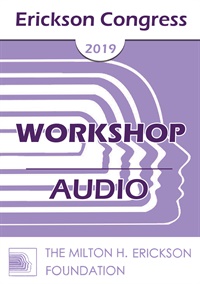
- Average Rating:
- Not yet rated
- Topic Areas:
- Workshops | LGBTQ | Multicultural | Strengths-Based | Ericksonian Hypnosis and Therapy Techniques
- Categories:
- Erickson Congress | Erickson Congress 2019
- Faculty:
- Rick Miller, MSW
- Duration:
- 1 Hour 51 Minutes
- Format:
- Audio Only
- Original Program Date:
- Dec 15, 2019
- Short Description:
- The emotional mystique between gay sons and their mothers has long been unexplored, but now new evidence suggests that a mother’s response to her son’s sexuality isn’t the only factor in his future success. How she nurtures him based on his interests, rather than his sexual preferences, is key, especially in a society with narrow definitions of masculinity.
- Price:
- $15.00 - Base Price

- Average Rating:
- Not yet rated
- Topic Areas:
- Workshops | Eating Disorders | Ericksonian Hypnosis and Therapy Techniques | Addiction | Hypnosis
- Categories:
- Erickson Congress | Erickson Congress 2019
- Faculty:
- Albina Tamalonis, PsyD
- Duration:
- 1 Hour 57 Minutes
- Format:
- Audio Only
- Original Program Date:
- Dec 15, 2019
- Short Description:
- During the first hour of this workshop the specific treatment ideas targeting Eating Disorders will be presented. Also, the workshop will delineate how an eating disorder is an addiction and present the underlying issues, which need to be addressed because of an addiction’s multi-dimensional infiltration. The remaining hour will be a demonstration of Ericksonian Hypnosis on a volunteer who wants to lose or gain any amount of weight. You will see: a Ericksonian diagnostic interview which focuses on the present where the solutions can be found; an Ericksonian induction using conscious/unconscious dissociation; a Ericksonian suggestion phase tailored to fit the patient; and a reorientation out of trance. There will be some time for questions and discussion.
- Price:
- $15.00 - Base Price
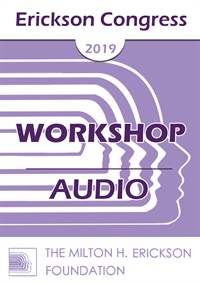
- Average Rating:
- Not yet rated
- Topic Areas:
- Workshops | Grief | Ericksonian Hypnosis and Therapy Techniques | Ericksonian Psychotherapy | Hypnosis | Psychotherapy | Aging and Mortality
- Categories:
- Erickson Congress | Erickson Congress 2019
- Faculty:
- Teresa Garcia-Sanchez, MA
- Duration:
- 1 hour 46 minutes
- Format:
- Audio Only
- Original Program Date:
- Dec 15, 2019
- Short Description:
- Loved ones leave us, couples and friends separate, we suffer physical changes as we grow up during adolescence and as we grow old, work changes happen, as well as our mood, which evolves throughout our lives.
- Price:
- $15.00 - Base Price
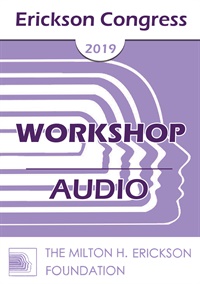
- Average Rating:
- Not yet rated
- Topic Areas:
- Workshops | Naturalistic | Ericksonian Hypnosis and Therapy Techniques | Utilization
- Categories:
- Erickson Congress | Erickson Congress 2019
- Faculty:
- Helen Erickson, PhD, MSN, AHN-BC, FAAN, SGAHN
- Duration:
- 1 Hour 57 Minutes
- Format:
- Audio Only
- Original Program Date:
- Dec 15, 2019
- Short Description:
- People have holistic, mind-body-brain interactions, an inherent predisposition to grow, individuate and actualize their potential. But sometimes people get stuck due to their concurrent need for human affiliations. A sense of unresolved loss between the two effects their ability to develop a healthy balance of affiliated-individuation which is needed to negotiate the multiple epigenetic developmental tasks from birth to death.
- Price:
- $15.00 - Base Price
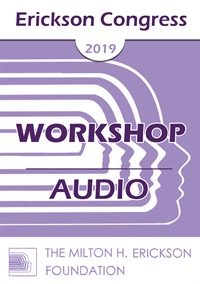
- Average Rating:
- Not yet rated
- Topic Areas:
- Workshops | Personality Disorders | Bipolar | Borderline | Destabilization | Hypnosis | Trance | Ericksonian Hypnosis and Therapy Techniques
- Categories:
- Erickson Congress | Erickson Congress 2019
- Faculty:
- John Lentz, D. Min.
- Duration:
- 1 Hour 58 Minutes
- Format:
- Audio Only
- Original Program Date:
- Dec 15, 2019
- Short Description:
- This workshop clarifies the Hypnotic aspects of Bipolar and Borderline Personality Disorder, and demonstrates easy ways to alter the trances that perpetuate the disorder. It begins by destabilizing the beliefs and behaviors that perpetuate the disorders and replaces those behaviors with more effective ones arising from the natural relationship and who the person is.
- Price:
- $15.00 - Base Price
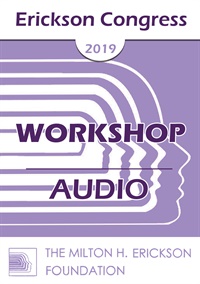
- Average Rating:
- Not yet rated
- Topic Areas:
- Workshops | Ericksonian Hypnosis and Therapy Techniques | Milton Erickson
- Categories:
- Erickson Congress | Erickson Congress 2019
- Faculty:
- Marilia Baker, MSW
- Duration:
- 1 Hour 27 Minutes
- Format:
- Audio Only
- Original Program Date:
- Dec 15, 2019
- Short Description:
- This workshop presents young Erickson’s transformative voyage of discovery – ostensibly to improve his physical health and muscular strength after poliomyelitis. This experience significantly influenced his outlook on life, paving the way for his future therapeutic strategies. This seventy-four-day canoe journey contains, in my view, the fundamentals of “the hero’s journey” as described by Joseph Campbell.
- Price:
- $15.00 - Base Price
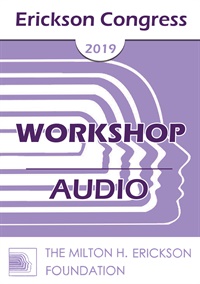
- Average Rating:
- Not yet rated
- Topic Areas:
- Workshops | Eye Movement Desensitization and Reprocessing (EMDR) | Ericksonian Hypnosis and Therapy Techniques
- Categories:
- Erickson Congress | Erickson Congress 2019
- Faculty:
- Bernhard Trenkle, Dipl. Psych
- Duration:
- 1 Hour 1 Minutes
- Format:
- Audio Only
- Original Program Date:
- Dec 15, 2019
- Short Description:
- Teaching since 12 years in China I also learned techniques from leading Chinese colleagues. In this workshop I will demonstrate an old Chinese technique used originally for preparing mentally for meditation in a way, so it can be used for psychotherapeutic purposes.
- Price:
- $15.00 - Base Price


